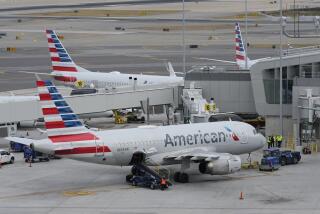Most corporate travel managers don’t let employees book cheap, no-frills fares. Here’s why
Travel managers for big corporations love saving money, but most won’t let their employees book the cheapest fares on business trips and the reason may have to do with how much workers can get done in the cramped, back-of-the-plane seats.
That was one of the findings of a study by Airlines Reporting Corp., a Virginia-based company that handles booking transactions between airlines and travel agencies. The analysis looked at the attitude corporate travel managers have toward “basic economy” fares, the no-frills tickets that come with many restrictions, such as no upgrades, no cancellations and no early boarding.
ARC surveyed 168 travel managers for large corporations and found that 63% have policies that never allow their employees to book basic economy fares. The same study found that 79% of travel booking programs used by corporate travel managers hide basic economy seats as an option, according to Chuck Thackston, ARC’s managing director of data science and research.
ARC did not identify the companies it surveyed but said that 65% of the firms spend at least $5 million a year on air travel, with 26% spending more than $20 million annually on air travel.
Over the last few years, Delta, United and American Airlines have all begun to offer basic economy fares to compete against low-cost airlines such as Spirit and Frontier, which had been drawing business away from the larger, mainstream carriers.
“A lot of business travel managers, when these fares came out, just said no,” Thackston said.
Gabe Rizzi, president of Travel Leaders Corporate, a Miami-based travel management company, said travelers who book basic economy fares often can’t sit next to colleagues, aren’t eligible for upgrades and are seated last and sometimes can’t get room in the overhead bin. Plus, he said, if business travelers miss a flight, they can’t get a refund for a basic economy ticket.
The overall experience may make business travelers so miserable they are unwilling to travel in the future, Rizzi said.
“In the end, a company will most likely end up spending more and the employees are less likely to want to travel to your assignment,” he said.
To read more about the travel and tourism industries, follow @hugomartin on Twitter.







